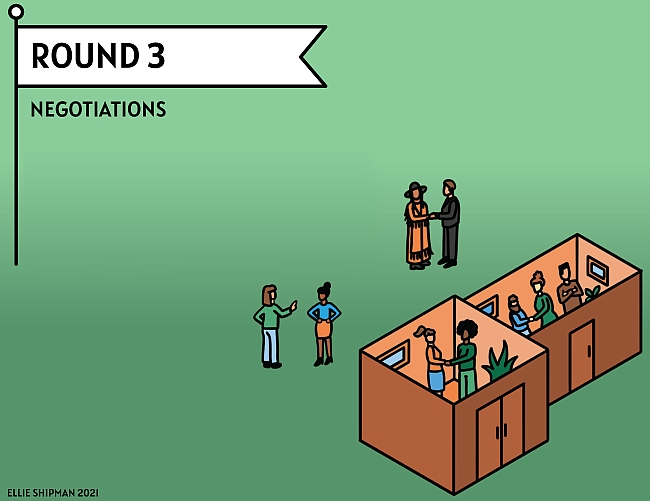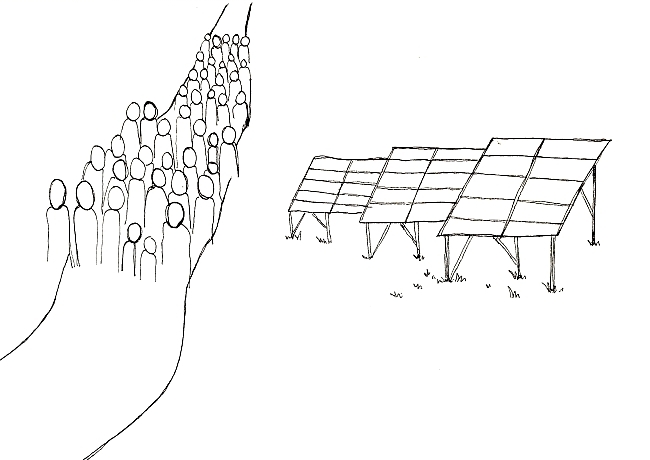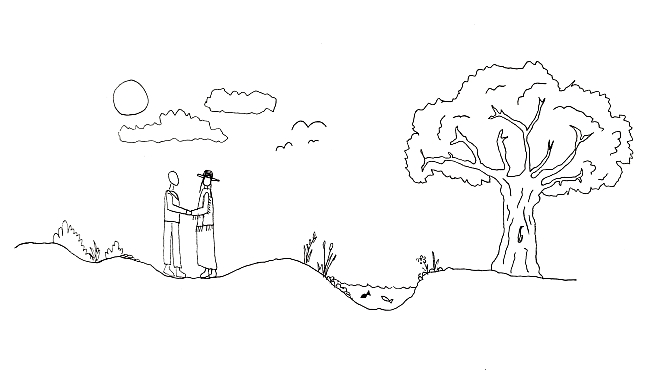Round 3: Bilateral negotiations

Delegates are allocated into two rounds of meetings with other nations or organisations. They must negotiate with one another and attempt to make their cases and find areas of compromise to try and agree on the level of ambition for each themed resolution.
Bristol Mock COP: What happened in practice
First set of bilateral meetings

One of the UK delegation students puts on a compelling impression of Boris Johnson, explaining that the UK intends to be a global leader in the ongoing fight for climate action, capturing the spirit of a hosting nation with a lot to prove.
China stress their position as an economic superpower, with their objectives being economic stability and becoming leaders in the field of environmental technology.
Both the Alliance of Small Island States (AOSIS) and the United Nation Hight Commission on Refugees (UNHCR) want immediate action on the mitigation of climate change, with AOSIS lamenting the fact that low-lying countries unfairly take the majority of impacts of climate change, suffering directly from sea level rise and storms, and the UNHCR demanding help for climate refugees.
Second set of bilateral meetings
The negotiations focus on the 7 resolutions, nevertheless it is up the students to decide on what issues they wish to raise and consider. There are no rules on what issues the delegates can deliberate on; the exercise is intended as a creative learning on the ‘art of possibility’ within the context of complex inter-governmental climate negotiations.

Shell and IMF meet and have a productive negotiating session, with the students cooperating well and thinking outside the box. Shell attempts to demonstrate high ambitions by pledging investment in climate finance, shifting to more financial language that appeals to the aims of IMF and is effective in getting them onside.
They bargain, using a compromise on coal targets to achieve a more gradual, and market-led transition to zero-emissions vehicles.
Third set of bilateral meetings
The student delegations have the opportunity to submit a list of their preference for which delegation they would like to negotiate with for the third bilateral meeting. The hosts arrange these third bilateral meetings as close to the student delegations preferences as possible.

Protecting nature is a hot topic across negotiations. IWGIA suggest amending resolution 3a to include the condition that indigenous peoples should be involved in the management and protection of the lands they occupy. Many groups are positive about the idea of collaborating with local people on this important aspect of climate change adaptation.
However, China and USA who were at odds on many things, come together to agree to vote against the amendment, despite having been in favour of the most ambitious resolution on protecting nature before the suggested change.